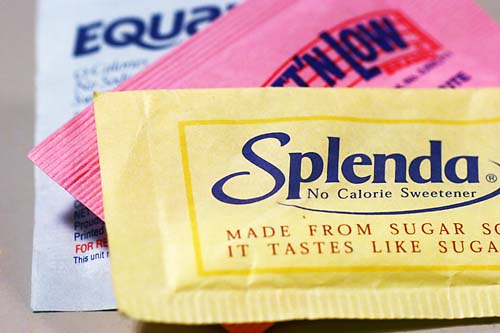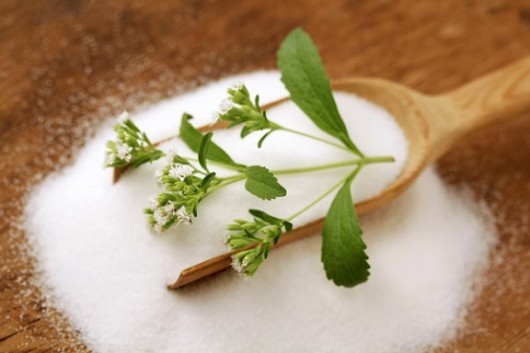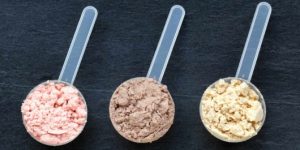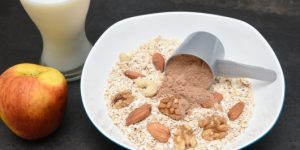There are tons of sugar substitutes and artificial sweeteners out there that promise to deliver zero-calorie sweetness that taste just like sugar. At the same time, we are bombarded with health scares regarding the artificial sweeteners and sugar substitutes. Well, we all know they don’t taste exactly the same, but when we are trying to lose weight or when we are simply avoiding the problems associated with refined sugar, we don’t hesitate to grab our favorite sweetener instead of natural sugar. But are they really bad for you? Below are some reviews of the most popular artificial sweeteners out there where you will know what’s in them and whether or not they are bad for your health.
[spoiler title=”tl;dr – click to read summary” style=”fancy”]
Sugar substitutes and artificial sweeteners are safe to consume. Despite controversies surrounding each one, recent research has shown that all substitutes are safe to consume in normal and moderate quantities. Some of these sugar substitutes and artificial sweeteners are Sweet n’ Low, NutraSweet, Splenda and Truvia and Stevia.
[/spoiler]
Sweet n’ Low
Sweet n Low is made mostly of saccharin and dextrose. Saccharin has been controversial over the past few decades, as it was assumed to be the culprit of bladder cancer. However, studies have shown that there is no information to prove this assumption. Therefore, saccharin is safe to consume at normal doses.
But what about dextrose? Dextrose is a simple plant-based sugar, more commonly known as glucose. Companies use the name dextrose because they think that glucose has negative associations with it, but it is needed by the body to function and it is completely natural, so don’t be scared by the strange name.
Verdict: Safe
NutraSweet
NutraSweet is an aspartame-based sweetener that has been the subject of many health scares. However, it is one of the most researched product by the FDA, and it has been concluded by independent, peer-reviewed research that aspartame is safe to consume at moderate.
What is a moderate level that is a safe level? According to the FDA, 50 mg/kg. In other words, if you weigh 165 lbs., you would have to consume 21 cans of diet soda a day to surpass the recommended maximum amount.
However, it is important to note that if you or someone you know has PKU (phenylketonuria), you should avoid aspartame at all costs. This is because one of the products of aspartame is phenylalanine, an essential amino acid that is necessary in most peoples’ diet, but if you have PKU (phenylketonuria) condition, your body cannot metabolize aspartame.
Verdict: Safe
Splenda
Splenda is a sucralose-based artificial sweetener that is not digested by the body, for the most part, making it non-caloric. It is popular because it is hundreds of times sweeter than table sugar and it is not sensitive to heat so it can be used for cooking just like regular sugar. It has been deemed safe to consume for a lifetime. Additionally, its sucralose’s effect on the body weight has been studied, though it has been determined that there is no direct effect on reducing body weight, unless it is used to replace large amounts of unwanted additional calories.
Verdict: Safe
Truvia And Stevia
Truvia is a sugar substitute that comes from a plant leaf called Stevia, and it has been used for centuries in South America. It has also been used in Japan for many years with no known adverse effects. Not only has Stevia been deemed safe as a sugar substitute, it also seems to have some additional positive heath effects such as an anti-diarrheal, anti-tumor, anti-hypertensive and more.

Stevia is about 30 times sweeter than sugar but it only has a maximum of 1 calorie per packet, which is a big benefit if you are trying to cut out extra sugars. It does have a different taste to it though, so you may need some time to get used to it.
Verdict: safe, with additional health benefits
Conclusion
All in all, sugar substitutes are safe to consume. Despite controversies surrounding each one, recent research has shown that all substitutes are safe to consume in normal and moderate quantities. If you want the additional health benefits, go with the natural ones like Truvia and Stevia, as long as you are willing to get used to the taste.
When you replace sugar with sugar substitutes and artificial sweeteners, it is important to remember that most of the sugar we consume comes in the form of processed foods. High consumption of refined sugar, often masked in the food we eat can cause many health complications. Research shows that there is a significant relationship between the amount of refined sugar we put in our daily coffee and higher incidences of colorectal cancer, while other studies show that high consumption of refined sugar can result in diverticular disorder. It can even affect neuronal and behavioral plasticity depending on the amount of sugar we consume.
Remember that replacing sugar with a sugar substitute may not be enough to avoid complications caused by the amount of refined sugar we consume. It is important to take a good look at the type of food we are eating and avoid processed food diets in favor of more natural plant-based sugars.



